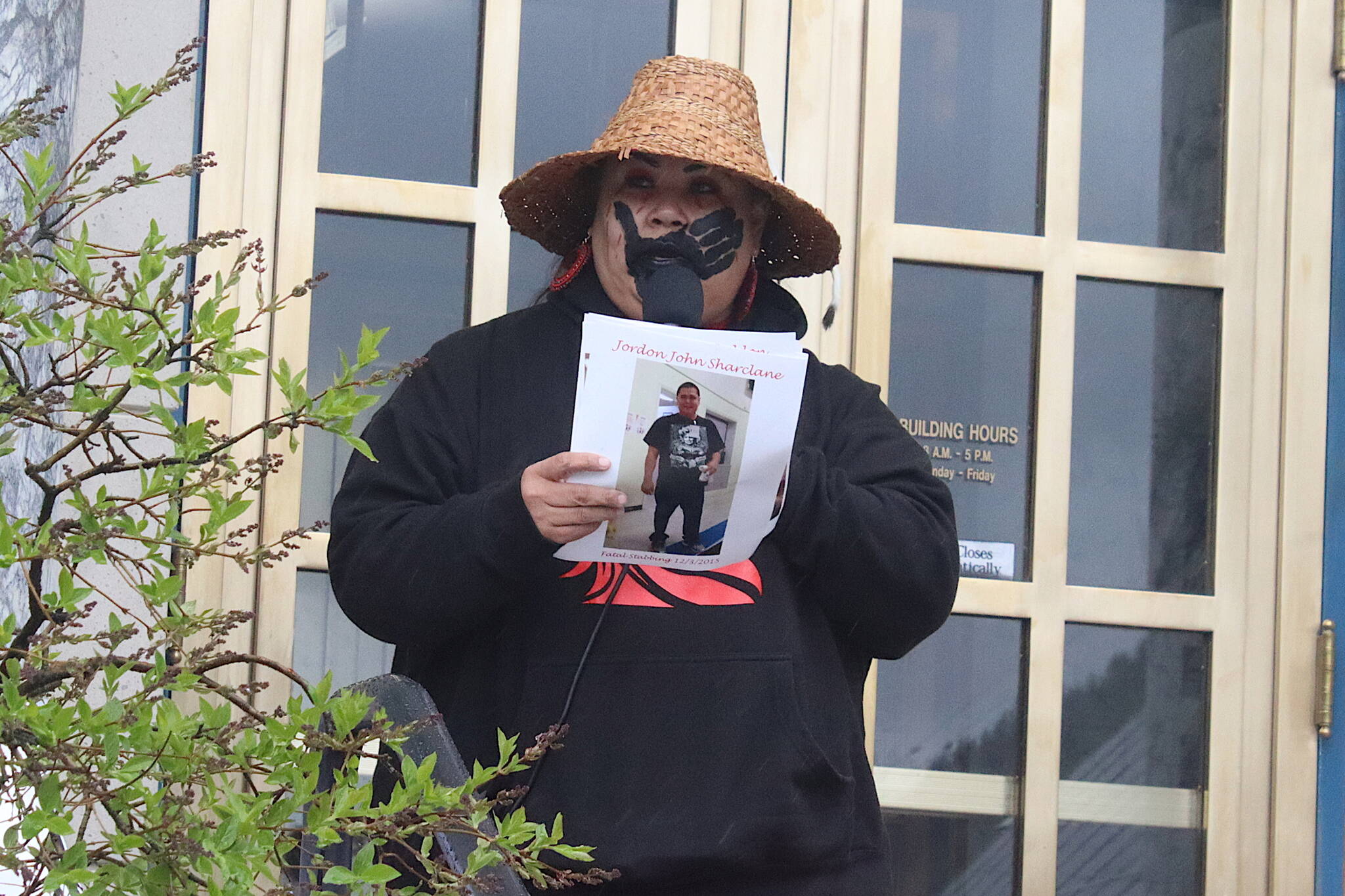Signs, photos and stories about people who participants wished could be at an event they wish didn’t have to take place were shared by more than 50 people in front of the Alaska State Capitol during a rally Sunday observing Missing and Murdered Indigenous Persons Awareness Day.
Among the names mentioned was Linda Sheldon Skeek, whose maiden name is Sheldon, last seen at her home in south Anchorage on New Year’s Day of 2016. Many years later, she remains among multiple missing or murdered people within one of the families at the rally.
“I felt in my heart getting this out there that my family will not stop until we have found Linda Sheldon,” said Jeni Brown, who presided over the rally as the Juneau Community Navigator at The Central Council of the Tlingit and Haida Indian Tribes of Alaska.
Brown said funerals are a significant part of her family’s culture and “if they don’t get a funeral then the spirit is unsettled. They don’t have a final resting place.” Finding Sheldon would mean “we’d be able to have peace in our family.”
Speakers at the rally included a mixture of Indigenous residents sharing stories about people they know who have been victimized, and state and local public officials talking about efforts being made to address the problem. In addition to the signs and photos, many rally participants wore or displayed red shirts and dresses symbolizing a call for action and awareness, and some people had a painted handprint over their mouth as a symbolic representation of violence affecting Indigenous peoples.
“We all know this happens in our community to our men, to our women and to our children, ” Brown said. “We need to be the leaders of today and lead by that example. We need to be the change that we’re looking for in the world. Stop waiting for somebody to do it and start doing it.”
Among the legislation mentioned by state lawmakers at the rally is a bill establishing a cold case task force for MMIP incidents, and a resolution urging the federal government to pass the Truth and Healing Commission on Indian Boarding School Policies Act.
“While the violence that’s experienced by women and girls who are missing and murdered across our state is the same, the response to that violence is not the same,” said Rep. Ashley Carrick, a Fairbanks Democrat. “The causes of that violence are not the same and the justice is not the same. And it is so critically important as we have these conversations as we have this legislation that comes before each of us that we acknowledge that, because until we recognize the disparity that exists for all of our people, for our missing and murdered Indigenous women and girls, we can’t solve the problem for them or for all our people in lockstep.”
A call to action by Indigenous men was offered by John Garcia, an MMIP advocate who said his remarks perhaps needed to be heard most by people not at the rally — including men who say they’re not among those committing abuses.
“We can’t just make jokes and put things to the side and say ‘that’s not me.’ That’s not enough,” he said. Because the problems are at the community level “until we step forward, speak up and say ‘no more’ nothing’s gonna change.
“We can have all our representatives, all our congresspeople do everything that they can, (but) until we take care of it at home we don’t change anything.”

